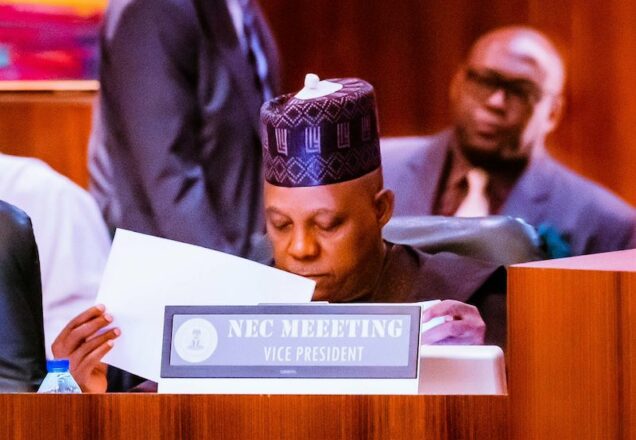
The long-simmering national debate over state policing took centre stage at a recent National Economic Council (NEC) meeting in Abuja, presided over by Vice President Kashim Shettima. The meeting, the first since President Bola Ahmed Tinubu publicly reaffirmed his commitment to decentralized policing, brought together all 36 state governors, the Central Bank of Nigeria (CBN) governor, and key ministers.
The session, held at the Council Chambers of the State House, was highly anticipated and quickly moved into a closed-door discussion after opening prayers. The focus on state policing comes as a direct result of President Tinubu’s recent statement to a Katsina State delegation, where he declared his intention to “create a state police.” This pronouncement has revitalized the conversation about fundamentally restructuring Nigeria’s security apparatus.
Proponents of state policing argue that it is a critical step towards addressing Nigeria’s persistent insecurity, including rising violent crime, kidnappings, and insurgencies. A decentralized force, they believe, would enable faster response times to local security challenges and improve intelligence gathering by personnel who are already familiar with the local terrain and culture. This, in turn, would reduce the immense pressure on the federal police force, which has been stretched thin across the country.
However, the path to implementation is not without its obstacles. Critics of the initiative remain cautious, fearing that state governors could misuse their power, turning a state police force into a tool for political intimidation and oppression. This historical concern has been a significant barrier, leading to repeated delays and the stalling of past constitutional amendment attempts aimed at empowering states with policing authority.
The NEC’s deliberation on this matter is a significant development, as previous meetings saw discussions on state policing deferred due to various constraints. With all states having reportedly submitted their positions on the matter, the current meeting signals a renewed and determined effort by the present administration to move beyond debate and towards a concrete solution for Nigeria’s security challenges. While the details of the closed-door session have not been officially released, the discussion marks a pivotal moment in the ongoing push for a comprehensive reform of the nation’s policing structure.








